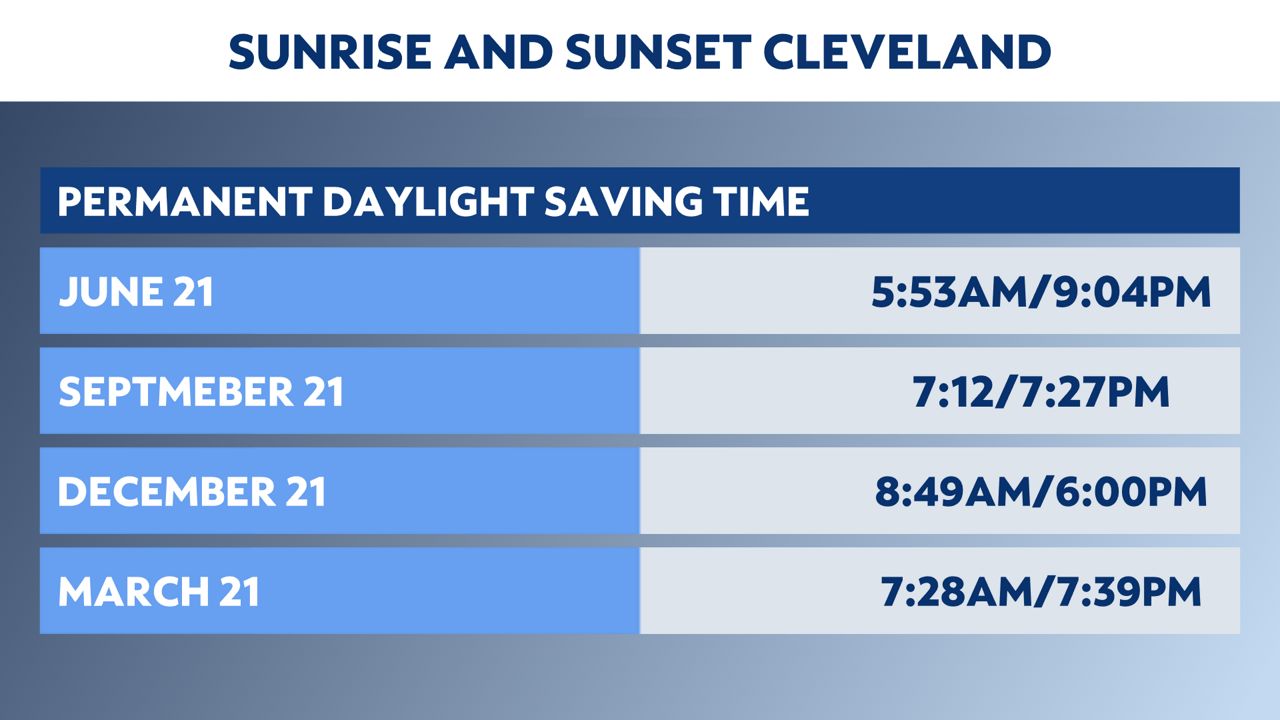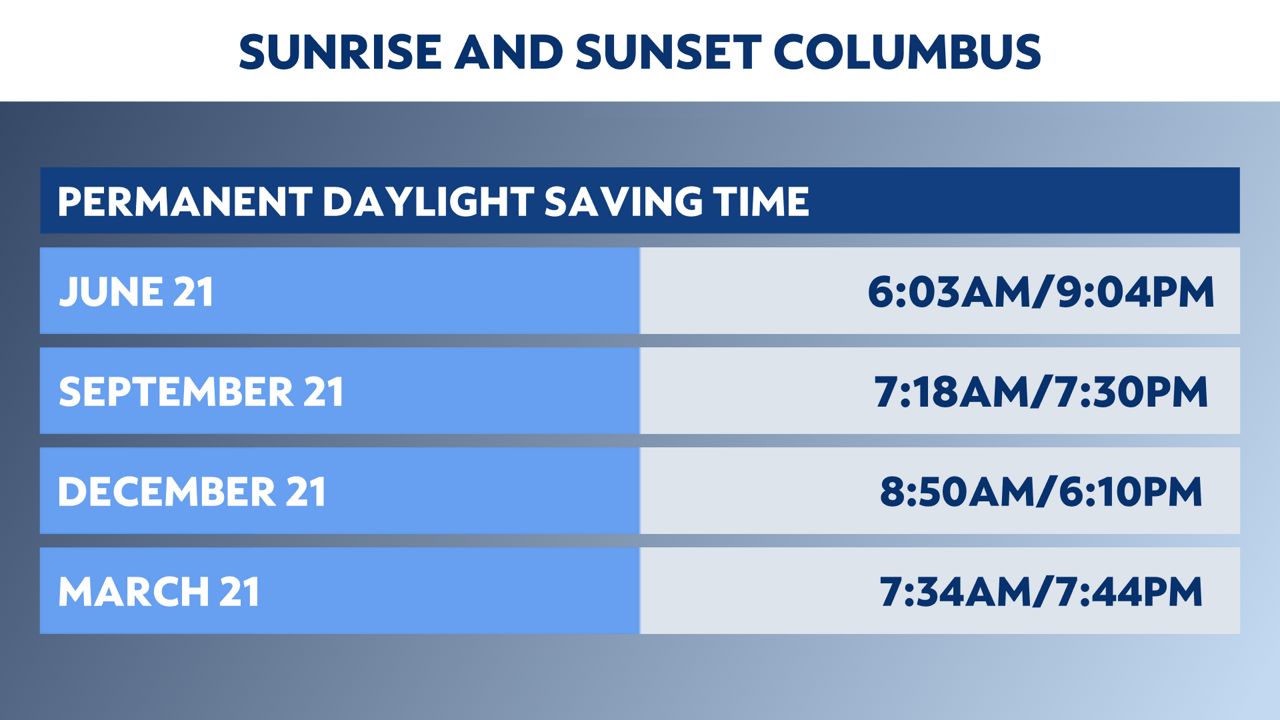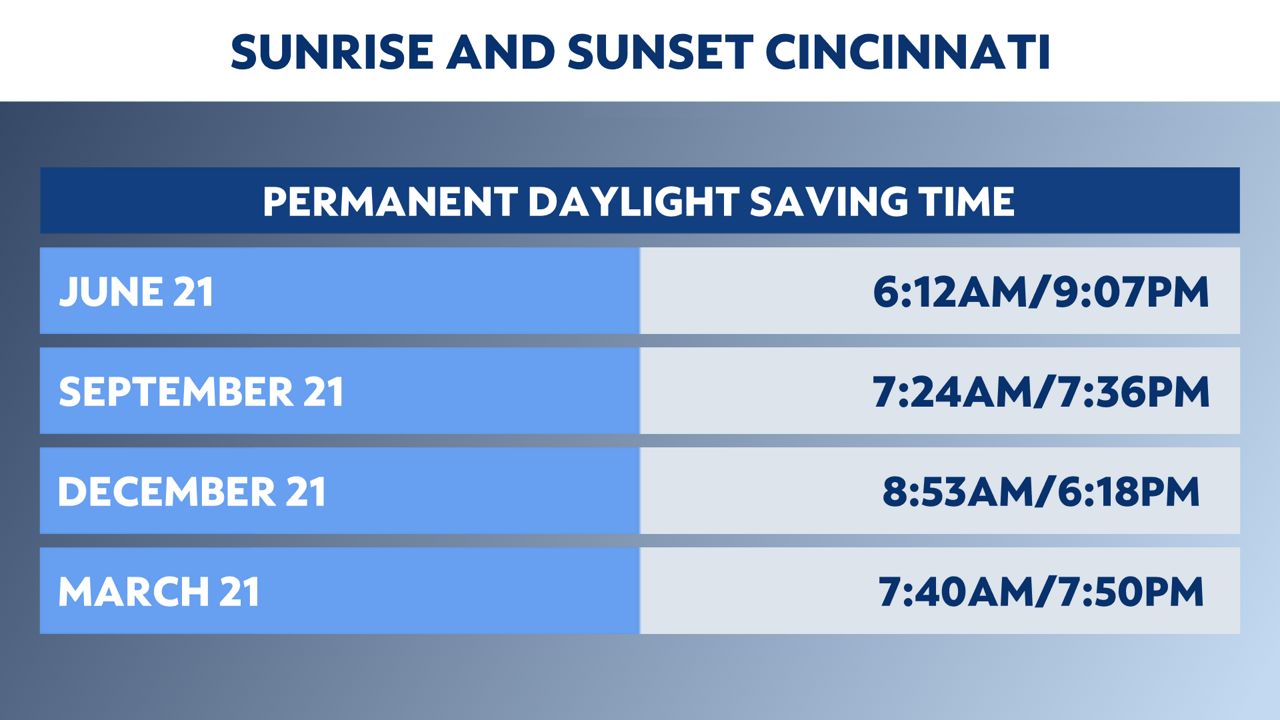Love it or hate it, we are used to changing the clocks twice a year.
Here in Ohio, we "fall back" in November and "spring forward" in March.
What You Need To Know
- If passed, the Sunshine Protection Act would take effect on Nov. 5, 2023
- Senate passed the bill but now waits for vote in the House
- Those on the western edge of the time zone would see some late sunrises in the winter
- Doctors agree time changes can negatively affect our health
The Sunshine Protection Act cruised through the Senate, but may take longer for the House to pass it.
The bill would keep daylight saving time for the entire year.
Here is a look at sunrise and sunset times for Cleveland, Columbus and Cincinnati under the proposed permanent daylight saving time.


Look at the sunrise times for December: We would be getting close to a 9:00 a.m. sunrise!

Doctors have said these changes not only disrupt our sleep but they can cause serious health issues like heart attacks and strokes.
There are concerns about kids waiting in the dark at the bus stop, as well as more morning car accidents.
The American Academy of Sleep Medicine released a statement saying not changing the clocks is a good thing, but they think permanent standard time is better than permanent daylight time.
They said "the adoption of year-round standard time, which aligns best with human circadian biology and provides distinct benefits for public health and safety."



